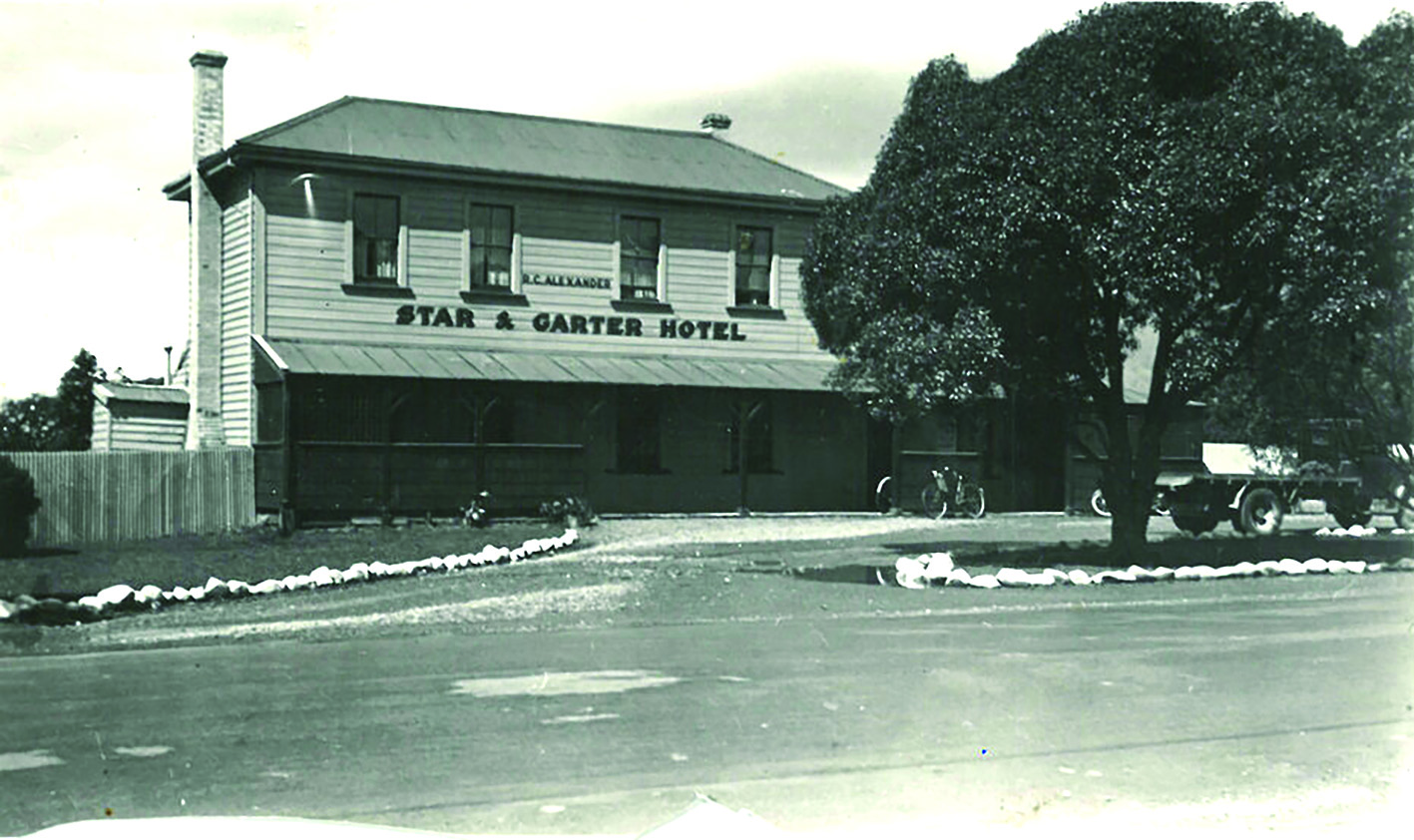History: If walls could talk, what tales could they tell? - Part 1

Star and Garter 1940. Photo: Tasman Heritage.
Despite being a small village, Richmond once boasted six hotels.
The earliest of these was the Star and Garter, built around 1845/46. One hundred and seventy-seven years later it still stands, not far from its original position.
The original building was the home of William Harkness, who arrived in Nelson via the ‘Thomas Sparks’ in 1843.
It sat a little further back from Queen St and became known as the Village Inn. It was then bestowed with the name we are all familiar with today. A curved carriageway off Queen St allowed easy access for travellers.
The hotel became the place where people met for pleasure and business, and to make decisions affecting the settlement.
During the breeding season, stud horses stood weekly in the outside paddocks. Auctions of land, homes, businesses and stock were a common occurrence, petitions for both local and national issues were instigated, formal inquests into deaths were held and events organised such as ploughing matches, horse fairs and pigeon shooting.
In October 1848, a meeting of the members of the Richmond Mechanics Institution took place when arrangements were made for more efficiently promoting the future welfare of the society.
Considering this institution was the precursor to our modern library, these types of meetings had far-reaching consequences.
The settlement had many absentee landowners and appointed principal agents to manage the relationships with their tenants.
On their first audit day, Messrs Fell and Seymour met these tenants at the hotel in July 1849, where they partook in a meal and ‘mingled’ with men from every class.
The event was reported to be very satisfactory, considering the difficulties that had beset the land question in the settlement. The one regret was the early hour the party broke up due to many living a distance from the hotel and needing to return home before dark.
Political meetings were common, with potential candidates vying for the peoples’ vote. One important meeting held at the Star and Garter was in 1850 to discuss the principles which had been suggested as the basis of a constitution for New Zealand.
The large room in the hotel was booked for the meeting, but such was the interest that numbers of people were unable to gain admission to the room and were compelled to stand at the door and windows.
In March 1852 a series of meetings were held to consider how to raise funding to purchase a piece of land for the Richmond Cattle Fair.
The hotel was then put up for let in April 1852 with possession to be given on 1 July. This was repeated in October 1852, with immediate possession, and again in June 1853.
A call went out to the inhabitants of Waimea in late 1853 to meet at the hotel to discuss the proposed Roads Bill tax for the formation and repair of the roads. The bill involved the levying and collecting of rates on land for the making and maintaining of highways and other public works.
Following some robust and loud discussion, a copy of the resolutions was recorded to be passed to the Provincial Council for consideration.
The following year, two gatherings worth mentioning were organised, one for the purpose of pushing forward the formation of an Agricultural Society and the other to consider the intention of a Commission of Inquiry into claims of the working class in Nelson for compensation based on a breach of contract by the New Zealand Company.
Compensation was sought for lack of employment and the difficult conditions that had been suffered by the working-class population of the settlement.
The Agricultural Society continues today in the form of the Agricultural and Pastoral Association.
